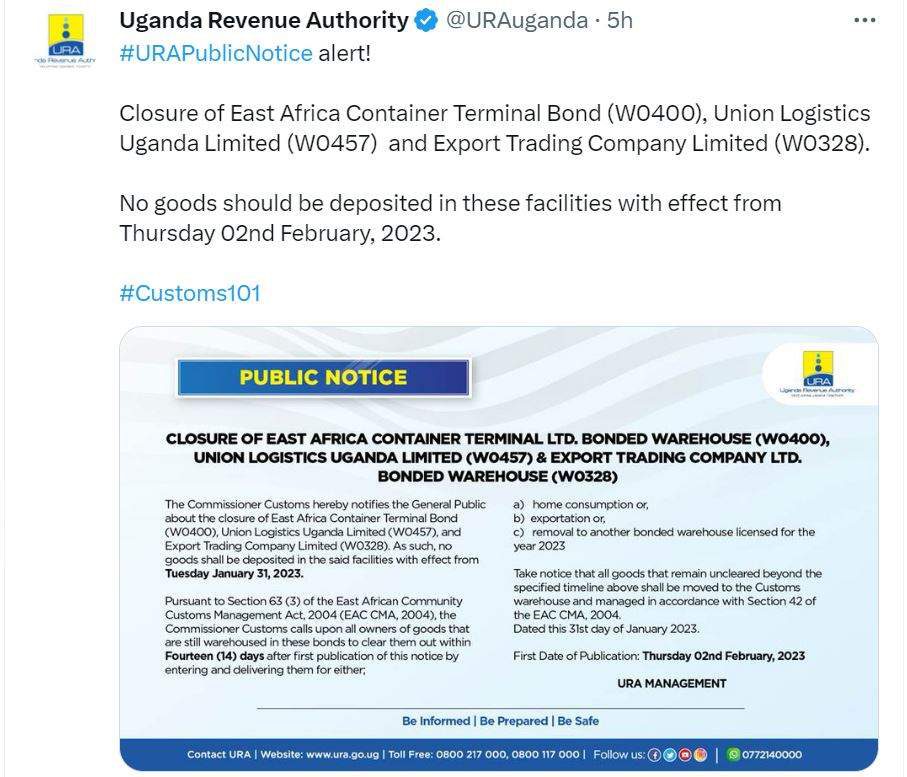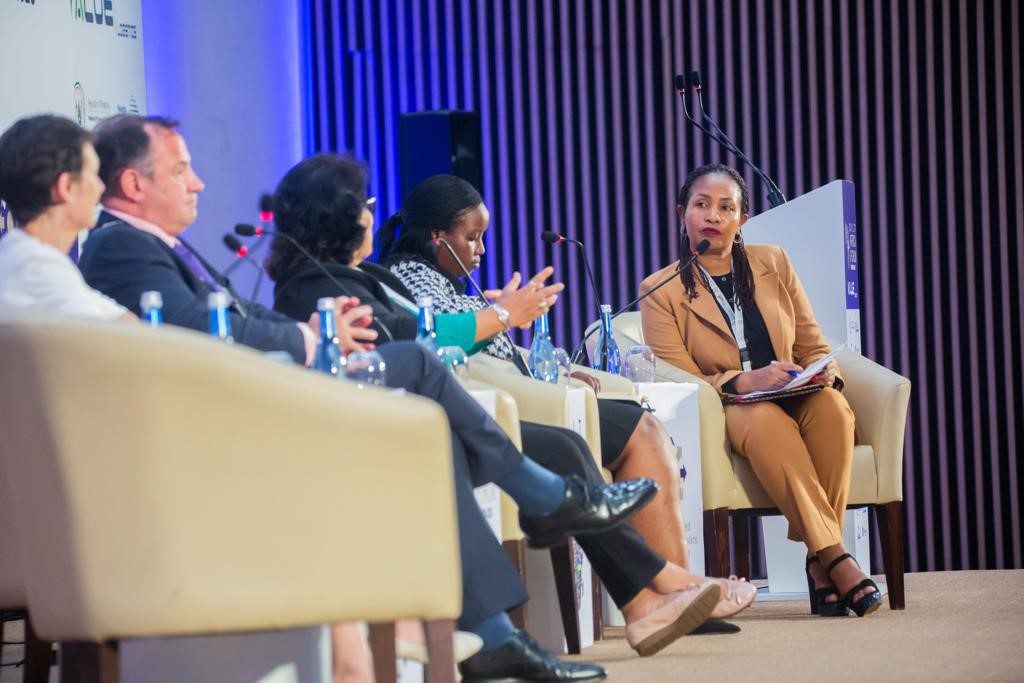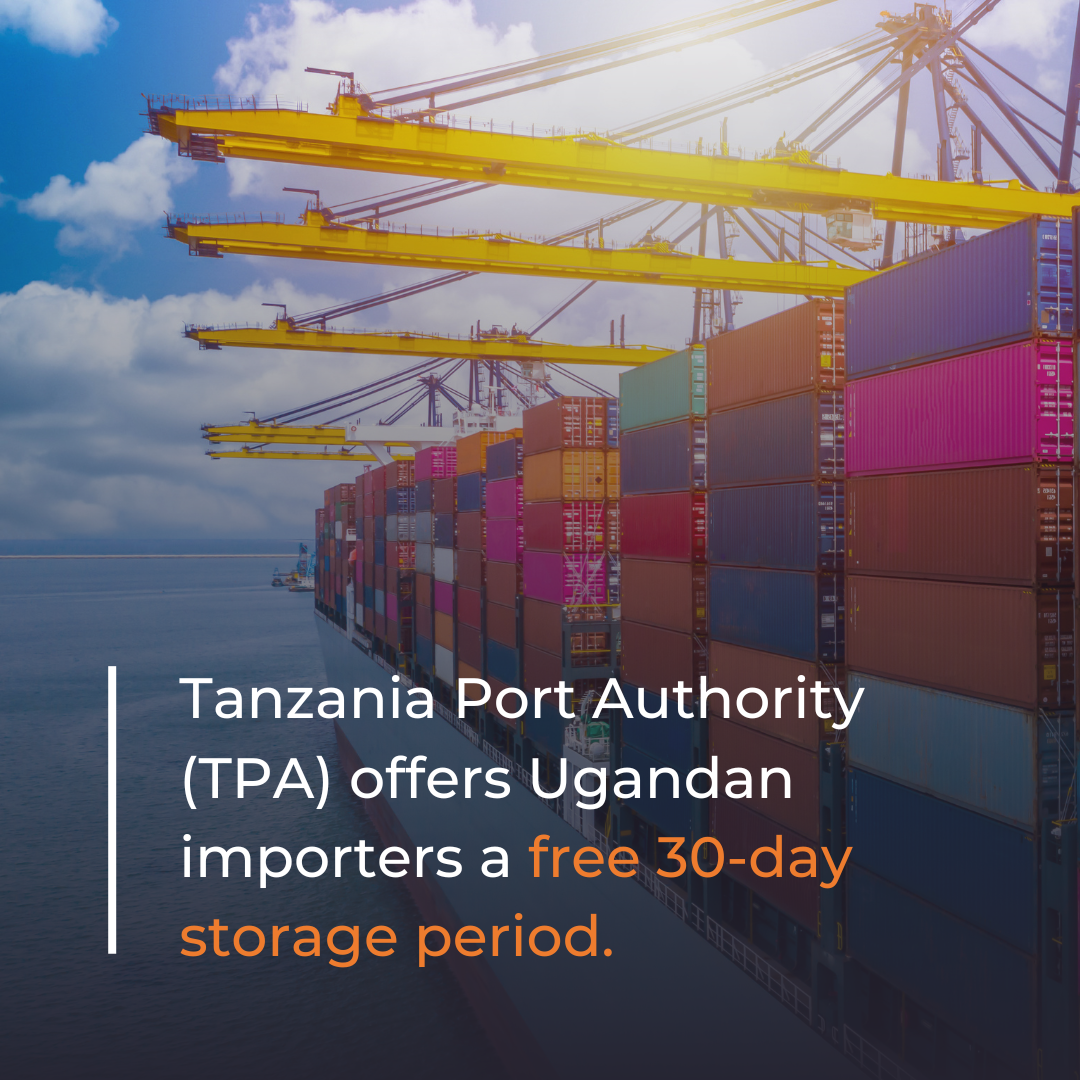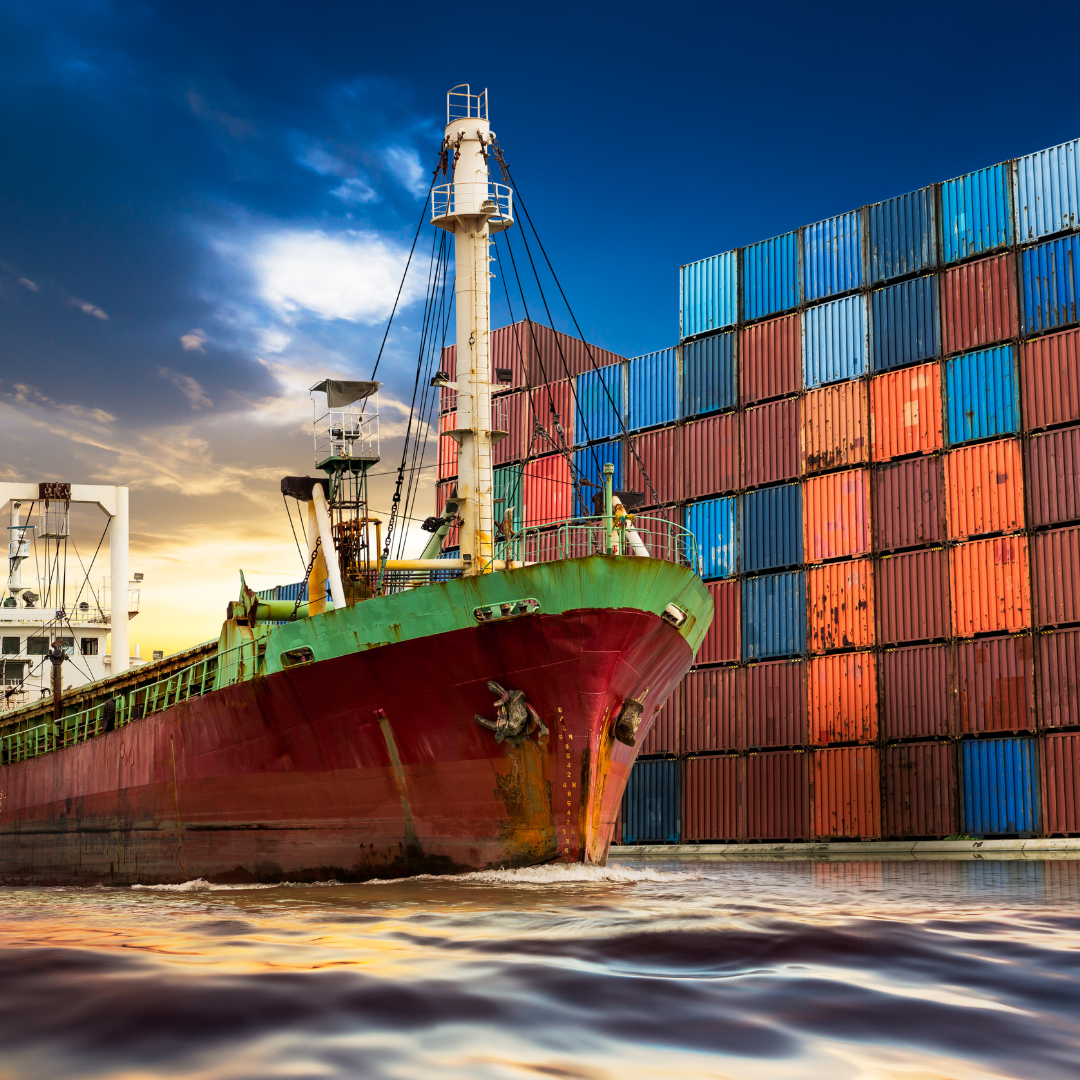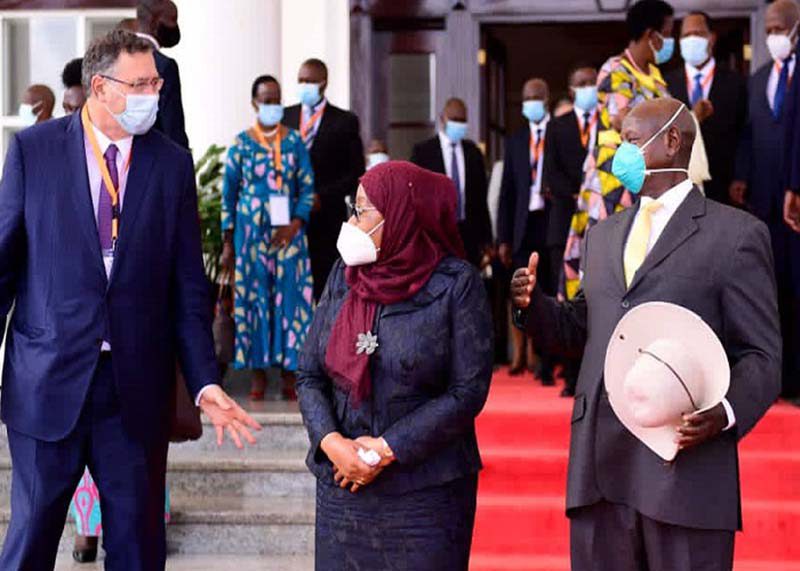Category: Tanzania
Multilines Rwanda Panel Discussion at CILT Africa Forum 2023
Multilines Rwanda‘s Managing Director, Mrs. Julie Mutoni, played a pivotal role in a panel discussion that focused on the significance of upskilling and continuous learning to drive innovation and growth in the transport and logistics industry. The discussion highlighted the crucial role of professionalism and capacity building in shaping the future of the industry.
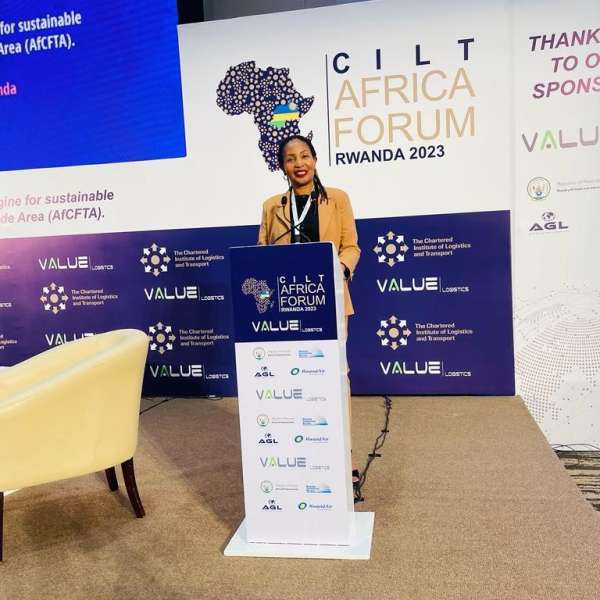
The panel discussion emphasized the need to create opportunities for women and other underrepresented groups to enter and excel in the transport and logistics industry. Multilines International firmly believes that fostering a culture of professionalism is essential to promoting ethical behavior and accountability, creating a more diverse and inclusive industry.
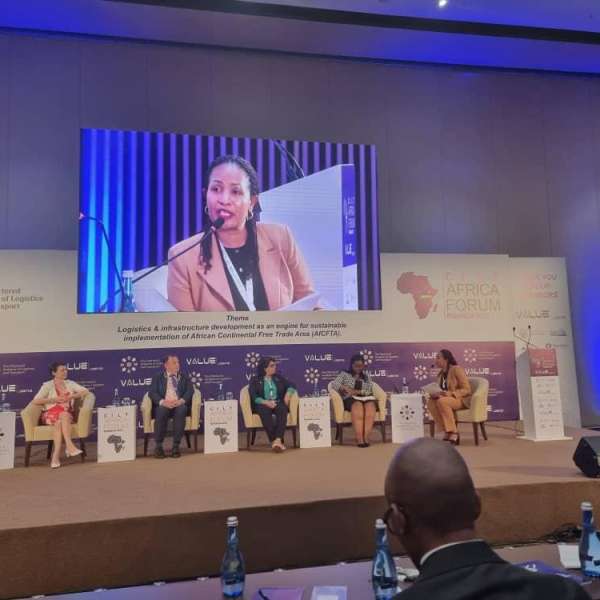
As an active player in the industry, Multilines International is committed to collaborating with others to build a stronger, more professional, and inclusive industry. The company is grateful to all the panelists for their valuable insights and to the attendees for their active participation and engagement. By promoting professionalism and capacity building, Multilines International aims to contribute to the growth and innovation of the transport and logistics industry.
Multilines International recognizes that the industry is constantly evolving, and professionals must adapt and upskill to remain relevant and competitive. The company is dedicated to providing training and development opportunities for its employees to enhance their skills and knowledge. Additionally, Multilines International seeks to encourage continuous learning and upskilling among professionals in the industry through various initiatives and partnerships.
The panel discussion moderated by Mrs. Julie Mutoni was an essential platform to discuss the importance of upskilling, continuous learning, and professionalism in the transport and logistics industry. Multilines International is committed to promoting these values to create a more inclusive and diverse industry that drives innovation and growth. By investing in the development of its employees and collaborating with other stakeholders in the industry, Multilines International hopes to contribute to the growth and success of the transport and logistics industry.
Tanzania Port Authority (TPA) Empowers Ugandan Traders with Free Port Storage.
In a time of unprecedented global disruptions caused by the Covid-19 pandemic, conflicts, and climate change, the Tanzania Port Authority (TPA) has unveiled a strategic initiative that promises to reshape the trade landscape in the region. The recent announcement of a free 30-day storage period for Ugandan importers signifies not just a shift in logistics dynamics, but also a bold step towards fostering trade confidence and growth. This landmark decision, unveiled at the FIATA-RAME 2023 Logistics Conference in Kampala, Uganda, aims to pave the way for a new era of resilient trade relations.
Navigating the Trade Challenges
Tanzania’s efforts to attract Ugandan importers have faced challenges, including high transportation costs and geographical disparities. The allure of the Mombasa port, with its proximity and cost efficiency, has often overshadowed the Dar es Salaam port. The statistics from 2018 illustrate this point: transporting a container from Dar es Salaam to Kampala cost around $4,800, while the same journey from Mombasa cost $2,700.
TPA’s Vision: Bridging Gaps and Building Confidence
TPA’s strategic move holds the promise of reversing this narrative by fostering a conducive business environment. Dr. Jane Buberwa, an expert based in Dar es Salaam, stresses the pivotal role of customer-centric strategies in attracting traders. She asserts that providing better customer care can significantly contribute to Tanzania’s vision of expanding port capacity to 30 million tonnes by 2030.
“Better customer care can woo more freight forwarders, even considering the distance factor,” Dr. Buberwa affirms, underlining the transformative potential of exceptional service quality.
Strategic Incentives: Empowering Trade
Beyond rhetoric, TPA is backing its commitment with strategic initiatives. A dedicated Ugandan shed for consolidation and deconsolidation purposes, specifically for imports, is a tangible testament to this commitment. This facility operates around the clock, offering a consolidation center that caters to the requirements of stakeholders. Additionally, the 30-day storage period serves as a crucial asset, facilitating practical and realistic import planning.
Mr. Yesaya Masangya, Marketing Manager at TPA, underscores the significance of this storage period. He emphasizes that it aligns with the needs of traders while ensuring compliance with industry standards.
Building the Trade Ecosystem: A Collaborative Approach
Dr. Abdul Mkongwa, an economist from the University of Dar es Salaam, recognizes the far-reaching impact of empowering traders. By offering opportunities and demonstrating unwavering commitment, Tanzania’s ports can emerge as preferred choices. Dr. Mkongwa notes that traders communicate among themselves, and the positive reputation of the ports can drive increased utilization and engagement.
Multilines International Limited: A Potential Participant
As a prominent freight forwarder in the region, Multilines International Limited emerges as a potential key player in this transformative journey. With a comprehensive suite of logistics services encompassing air and sea freight, customs brokerage, warehousing, and distribution, Multilines is poised to support the anticipated surge in trade activity driven by TPA’s strategic initiatives.
In Conclusion: Charting a New Trade Landscape
TPA’s introduction of a free 30-day storage period for Ugandan importers signifies more than just a pragmatic incentive; it symbolizes a commitment to nurturing thriving trade relations. With a well-defined vision and support from potential stakeholders like Multilines International Limited, Tanzania stands poised to usher in a new era of dynamic regional trade.
As we witness this strategic evolution, Multilines International Limited remains dedicated to offering top-tier logistics solutions aligned with evolving trade demands. Delve into Multilines’ array of services, and embark on a journey towards seamless trade excellence.
Enhancing Efficiency at Dar es Salaam Port: Multilines International Welcomes DP World Partnership
Multilines International is excited to share the latest developments in the logistics and cargo industry that directly impact our operations at the Dar es Salaam Port. The Tanzanian government has signed three pivotal investment and operation contracts with the Dubai-based DP World Company, aimed at revolutionizing the port’s efficiency and performance. These developments signify a significant milestone in our ongoing efforts to improve import and export logistics for our clients.
A New Era for Dar es Salaam Port:
The signing of these contracts, which occurred at Chamwino State House in Dodoma and was witnessed by President Samia Suluhu Hassan, is poised to bring a new era of efficiency and prosperity to the Dar es Salaam Port. The contracts include the Host Government Agreement (HGA), the lease and operation of berths 4-7, and the joint operation of berths 0-3. These agreements, which will have a duration of 30 years, represent a substantial step towards modernizing the port’s operations.
Enhanced Efficiency and Revenue Generation:
The partnership with DP World promises to streamline port operations, reduce document processing time, and ultimately enhance the services provided to ships and cargo. This improved efficiency is expected to attract more ships and cargo to pass through Dar es Salaam Port, stimulating growth in the logistics industry.
One significant change is that, previously, the government was using 90 percent of revenue collected from leased areas in port operations, retaining only 10 percent. With these new agreements in place, the government will now be able to keep more than 60 percent of all revenue, as all operating costs will be borne by DP World. This change is expected to lead to a substantial increase in government revenue and a reduction in operating costs.
Custom duties collected by the Tanzania Revenue Authority (TRA) will also be positively impacted by this development, as they will be based on the number of serviced ships. Projections show that this will result in a substantial increase in revenue collection, with expectations that revenue collected at the port will grow from Sh7.8 trillion in 2021/22 to Sh26 trillion by 2032.
Key Performance Indicators and Local Content:
In addition to these promising changes, the Tanzanian government will implement key performance indicators that DP World must meet to ensure the highest standards of service and efficiency. Moreover, Tanzanians will participate in this contract through relevant provisions such as the local content, ensuring that local talent and businesses are included in the port’s operations and development.
Looking Ahead:
We are optimistic that these agreements will not only improve the logistics landscape at the Dar es Salaam Port but also benefit various sectors such as railways and roads due to the increased cargo traffic. It’s anticipated that the time spent transporting cargo from the Middle East will be significantly reduced from 30 days to 15 days, fostering a more efficient and attractive trade route for businesses and cargo.
Multilines International is committed to staying at the forefront of these developments and leveraging the opportunities that arise from this partnership. We are excited about the potential this holds for our clients and the logistics industry as a whole.
Unlocking The East African Crude Oil Pipeline (EACOP) Project: A Logistics Guide
Introduction: The East African Crude Oil Pipeline (EACOP) project is poised to revolutionize Uganda’s Oil and Gas industry by transporting its crude oil to global markets. In this comprehensive guide, we explore the significance of the EACOP project, its logistics, cargo transportation, supply chain management, and environmental considerations. Let’s dive into the details of this ambitious venture that involves collaborative efforts among leading energy companies and logistics experts.
- The Significance of EACOP: The EACOP project responds strategically to the discovery of significant petroleum resources in Uganda. It seeks to commercialize crude oil by transporting it from the Albertine Graben to the East African Coast. Stretching 1,443 kilometers, this heated, insulated, and buried crude oil export pipeline promises to elevate Uganda’s presence in the global energy market.
- Smooth Cargo Transportation and Freight Forwarding: The heart of the EACOP project lies in efficient cargo transportation, ensuring seamless movement from production to international markets. Well-planned freight forwarding and road transport solutions guarantee secure and timely deliveries. With a capacity of 216,000 barrels per day, EACOP is poised to drive economic growth and contribute to the global energy landscape.
- Streamlined Supply Chain Management and Warehousing: Success in the EACOP project hinges on streamlined supply chain management. Close coordination between stakeholders ensures smooth operations from oil producers to the export terminal. Advanced warehousing facilities equipped with inventory management systems safeguard crude oil during transit, ensuring top-notch product quality and security.
- Fourth Party Logistics (4PL) and Expertise: The EACOP project embraces efficiency through Fourth Party Logistics (4PL) services. Collaborative efforts among governments, energy companies, and logistics experts optimize freight transport, packing, labeling, storage, and environmental adherence. This dedicated approach ensures that perishables are handled responsibly, aligning with sustainability practices.
- Environmentally Responsible Practices: Environmental preservation is a key focus of the EACOP project. Rigorous environmental and social impact assessments address concerns and mitigate potential risks. With a commitment to sustainability, the project incorporates responsible logistics practices throughout its journey.
Conclusion: The East African Crude Oil Pipeline (EACOP) project marks a defining moment for Uganda’s Oil and Gas industry. As Uganda embarks on this transformative journey to transport its crude oil to global markets, efficient logistics, cargo transportation, supply chain management, and responsible practices take center stage. With collaborative efforts among governments, energy companies, and logistics experts, the EACOP project paves the way for a brighter and sustainable future for Uganda’s energy aspirations on the global stage.
https://www.pau.go.ug/the-east-african-crude-oil-pipeline-eacop-project/


